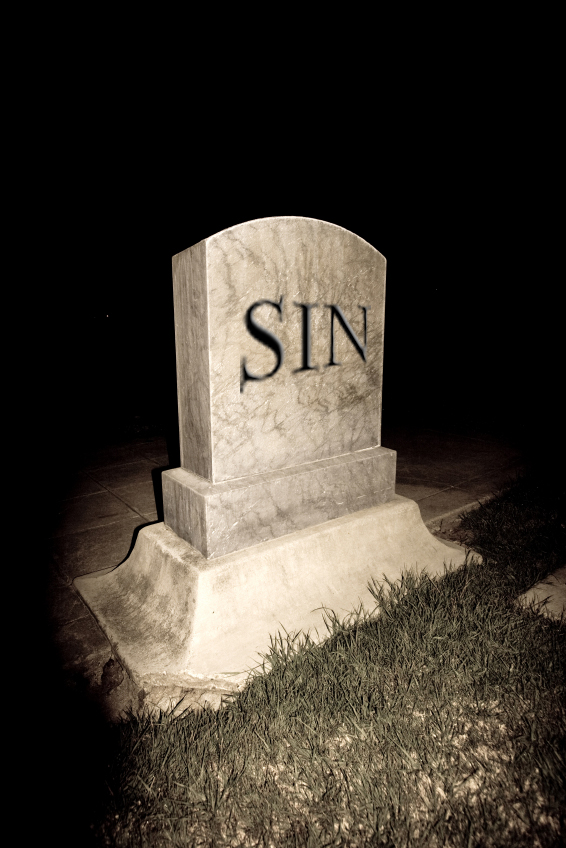Back to series



Dying to the Flesh
Click here to open a Print - Friendly PDF
One of the greatest hindrances to discipleship is what the Bible calls “the flesh.” How do we overcome the flesh? The Bible declares that to be delivered from the flesh we must die. And when we turn to Jesus Christ in repentance and faith that is just what happens to us. Paul says that all who have been baptized into Christ have “died to sin.” Something has happened to us as believers so that continuing to live as we did before no longer makes sense; it is illogical. “We died to sin,” Paul says, “how can we live in it any longer?” (Rom. 6:2).1
How are we to understand this “death to sin”? Some see it as a final and complete break: Christians are completely cut off from any influence of or attraction to sin. But if that is what it means to be a Christian, I’ve never met one, and I’m sure none exists. For the truth is, Christians still sin. All of us do. And if we had no attraction to sin, why does Paul have to keep exhorting us, as he does so often, to live godly lives?
Others say this is something that ought to be true of us, or that it is a process in us: “we are dying to sin.” But Paul speaks of it here as a fact; this is something that happened, in the past: we died to sin.
So what does this mean? The key is to recognize that Romans 6 comes right after Romans 5. In the second half of chapter 5, Paul sees every human being as being bound up in solidarity with one of two men—Adam or Christ. These two function as the representative heads of two eras or two families. First, by birth we were all caught up in the old era, the era of Adam. Adam was appointed by God as the representative of all mankind. When Adam sinned, we all sinned in and with him, and so through his sin, death came to us all. We, along with all other human beings, were trapped under the oppressive reign of sin. We were a part of the kingdom of death.
But the message of the gospel is that that is not the only solidarity to which we can belong. God has appointed a new head, a second Adam, whose obedience has powerfully overcome the sin of that first Adam. And by faith we can become a part of this new era, this new family—the family of Jesus Christ. We are transferred into another kingdom, a kingdom of grace.
Now in Romans 6 Paul draws out the personal implications of this cosmic reality. If Jesus is now our representative head, then His death to sin means that we died too. In Christ we died to sin. We are no longer in the old Adamic family; we are in the family of Christ. We no longer belong to that kingdom of sin and death; we now belong to the kingdom of righteousness and life. Where once sin reigned in death, now grace reigns through righteousness (Rom. 5:21). Or as Paul says in Colossians 1:13: The Father “has rescued us from the dominion of darkness and brought us into the kingdom of the Son he loves.”2 It is as if we are now out of sin’s rightful territory. We have crossed the state line, so to speak. Now the devil may yell across at us, but he has no rightful authority over us.
Again, Paul is not making a statement about our experience, necessarily, but about our status. In our experience we are a lot like some of the American slaves after the Civil War. They were given their emancipation, but some had lived their whole lives as slaves, and they didn’t know what it meant to live as free men. They still thought they could be bought and sold as property. So we can still act like slaves, under the reign of sin, when in fact we died to sin, and we are now under the reign of God’s grace.3 Paul’s main point in all of this is his statement in Romans 6:14: “Sin will have no dominion over you” (ESV).
So if this is now the case, if we died to sin, Paul says, “how can we live in [sin] any longer?” We have a new status, as those belonging to Christ, and this new status must lead to a new way of life. Continuing to sin is as illogical as an emancipated slave still toiling for no pay under the hand of an oppressive master in the cotton fields of Mississippi. It makes no sense. One cannot become a Christian without becoming a new person, called to live a new life. For in coming to faith in Christ, we died to sin.
But how have we died to sin? What is the means of this new reality? This is Paul’s concern in Romans 6:3–11.
Don’t you know that all of us who were baptized into Christ Jesus were baptized into his death? We were therefore buried with him through baptism into death in order that, just as Christ was raised from the dead through the glory of the Father, we too may live a new life. (6:3–4)
 Paul appeals to the common experience of baptism—every Christian, Paul assumes, has had his or her faith visibly expressed in the waters of baptism. Baptism was so intimately connected with conversion in Paul’s mind that he could speak of baptism as shorthand for the conversion experience as a whole. And baptism, in this sense, is the means by which we are joined to Jesus Christ. And since we are joined to Him by faith, as exhibited in baptism, what is true of Him becomes true of us.
Paul appeals to the common experience of baptism—every Christian, Paul assumes, has had his or her faith visibly expressed in the waters of baptism. Baptism was so intimately connected with conversion in Paul’s mind that he could speak of baptism as shorthand for the conversion experience as a whole. And baptism, in this sense, is the means by which we are joined to Jesus Christ. And since we are joined to Him by faith, as exhibited in baptism, what is true of Him becomes true of us.
And what is true of Christ? Romans 6:9–10: “For we know that since Christ was raised from the dead, he cannot die again; death no longer has mastery over him. The death he died, he died to sin once for all; but the life he lives, he lives to God.”
Becoming a Christian, which is publicly manifest in baptism, means being identified with Christ—being identified with Him in His death, as the believer says, “That is the death I deserve.” And it also means being identified with Christ in His resurrection, as the believer says, “That is the life that I now share and will share.” Jesus Christ died to sin—he decisively said no to sin—even to the point of death. He triumphed over it, by obediently enduring its sting on our behalf. But He was raised to life by the Father, never to die again. If we are identified with Christ in His death, we will also share in His life.
Twice Paul says it: “If we have been united with him like this in his death, we will certainly also be united with him in his resurrection” (6:5); and again in verse 8: “Now if we died with Christ, we believe that we will also live with him.” This is what identification with Christ means; what is true of Him is true of me. It’s like identifying yourself with a football team: when they win, you win; you share in their joy! But when they lose, you lose, and you feel their pain!
“We died to sin.” Paul expounds this further in verse 6: “For we know that our old self was crucified with him so that the body of sin might be done away with, that we should no longer be slaves to sin.” There is a great deal of discussion among commentators as to exactly what the various terms Paul uses here actually mean. Let me set forth a way of understanding them that I have found helpful.
That “old self” is not a part of me. It is not my “old nature.” It is the whole of me as I used to be as a child of Adam, as a subject of the rule of sin and death. That “old self” died when I was transferred into the kingdom of Christ. But Paul refers here to another aspect of our existence—“the body of sin.” This “body of sin” is our embodied existence in this fallen world; it is our “mortal body” or our “sinful nature”—“the flesh.” This still exists, and it is still related to our former existence in Adam. I know that there is something about my new existence in this world that is still related to my former existence in Adam because my body will die. It is a mortal body—a body that is still a part of that old era, that sphere of sin and death.
The Christian, you see, is a “new man” in an old “mortal body.” We have already died to sin with Christ when we were joined to Him in baptism, but we have not yet been raised to glory with Him in His resurrection. We live between the ages, having joined the new era, while still dragging along some of the traits of the old.

It is important to emphasize that this is not saying that physical existence is bad and that things related to material life are evil. Eating good food and enjoying sexual relations in the context of marriage, for example, are good things. As we’ve said, for Paul the sins of the flesh are not just gluttony and lust; they also include things like greed and envy and pride (see Gal. 5:19–21). This “body of sin” that he refers to here is the remains of my Adamic existence as I continue to live in this old, fallen world as a new man, now a part of a new era.
But Paul says that God’s purpose in putting to death my old man is that the body of sin might ultimately be done away with, taken out of commission—which is what He will do. But, for now, we still struggle with sin, so long as we are still in this mortal body, still this side of heaven and the glories of the resurrection. We still struggle with sin; even so, we are no longer slaves to sin.
That is Paul’s point in Romans 6, and it is this fact that Paul wants us to get straight in our heads, as he says in verse 11: “Count yourselves dead to sin but alive to God in Christ Jesus.”
We have died to the rule of sin and death: “the flesh” is no longer our tyrannical master. Its spell over us has been broken. You’ve been emancipated, Paul says, so don’t continue to think like a slave. We can never go back to that state of captivity, for now we are alive to God and His grace in Christ.
| Notes 1. Unless otherwise noted, all Scripture references in this article are from the New International Version. 2. See also Acts 26:18: “I am sending you to them to open their eyes and turn them from darkness to light, and from the power of Satan to God.” 3. This illustration is found in the work of Welshman Martyn Lloyd-Jones. |
|||

William L. Kynes
Pastor, Senior Fellow for Pastoral Theology, CSLI Pastor William L. "Bill" Kynes is the Senior Fellow for Pastoral Theology at the C.S. Lewis Institute, and retired Senior Pastor of Cornerstone, an Evangelical Free Church, in Annandale, VA, where he served from 1986 - 2022. He was an undergraduate at the University of Florida with a major in philosophy. There he also played quarterback and was later inducted into the university’s Athletic Hall of Fame. He attended Oxford University as a Rhodes Scholar, receiving an MA in theology. He received an MDiv from Trinity Evangelical Divinity School, before returning to England for a PhD in New Testament from Cambridge University. From 1997-1999, he served as an adjunct professor in New Testament for the Trinity Evangelical Divinity School Washington, DC, Extension Program.
 COPYRIGHT: This publication is published by C.S. Lewis Institute; 8001 Braddock Road, Suite 301; Springfield, VA 22151. Portions of the publication may be reproduced for noncommercial, local church or ministry use without prior permission. Electronic copies of the PDF files may be duplicated and transmitted via e-mail for personal and church use. Articles may not be modified without prior written permission of the Institute. For questions, contact the Institute: 703.914.5602 or email us.
COPYRIGHT: This publication is published by C.S. Lewis Institute; 8001 Braddock Road, Suite 301; Springfield, VA 22151. Portions of the publication may be reproduced for noncommercial, local church or ministry use without prior permission. Electronic copies of the PDF files may be duplicated and transmitted via e-mail for personal and church use. Articles may not be modified without prior written permission of the Institute. For questions, contact the Institute: 703.914.5602 or email us.
-
Recent Podcasts
A Welcome Change in Apologetics
by Randy Newman, Aimee Riegert on April 19, 2024We’re burdened for our friends who don’t know...Read More
-
Questions That Matter Podcast – Samuel James and Digital Liturgies
by Samuel James, Randy Newman on April 19, 2024
-
The Side B Stories – Dr. James Tour’s story
by Jana Harmon, James Tour on April 12, 2024
-
Recent Publications
Isn’t Morality Relative?
by Christopher L. Reese on April 1, 2024It is widely accepted in the Western world...Read More
-
Do Muslims and Christians Worship the Same God?
by Andy Bannister on March 1, 2024
-
Artificial Intelligence and Its Impacts on Humanity
by John Lennox on February 13, 2024
0
All Booked
0.00
All Booked
0.00
All Booked
20599
GLOBAL EVENT: 2024 Study Tour of C.S. Lewis’s Belfast & Oxford
https://www.cslewisinstitute.org/?event=global-event-2023-study-tour-of-c-s-lewis-belfast-oxford-2&event_date=2024-06-22®=1
https://www.paypal.com/cgi-bin/webscr
2024-06-22

Next coming event
Days
Hours
Minutes
Seconds
GLOBAL EVENT: 2024 Study Tour of C.S. Lewis’s Belfast & Oxford
On June 22, 2024 at 12:00 pmat Belfast, Northern Ireland & Oxford, EnglandSpeakers

William L. Kynes
Pastor, Senior Fellow for Pastoral Theology, CSLI
Team Members

William L. Kynes
Pastor, Senior Fellow for Pastoral Theology, CSLIPastor William L. "Bill" Kynes is the Senior Fellow for Pastoral Theology at the C.S. Lewis Institute, and retired Senior Pastor of Cornerstone, an Evangelical Free Church, in Annandale, VA, where he served from 1986 - 2022. He was an undergraduate at the University of Florida with a major in philosophy. There he also played quarterback and was later inducted into the university’s Athletic Hall of Fame. He attended Oxford University as a Rhodes Scholar, receiving an MA in theology. He received an MDiv from Trinity Evangelical Divinity School, before returning to England for a PhD in New Testament from Cambridge University. From 1997-1999, he served as an adjunct professor in New Testament for the Trinity Evangelical Divinity School Washington, DC, Extension Program.




